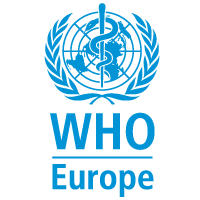
WHO/Europe, through its Small Countries Initiative, has launched a new roadmap detailing strategic actions for improving health and well-being in small countries by 2025.
Over the past 2 years, the pandemic has tested our governments and the resilience of our health systems. Moreover, it has impacted countries differently – the challenges faced by countries with 2 million inhabitants or fewer are significantly different from those with populations of 50 million. Small countries now face a shortage of health workers, inequitable access to medicines and vaccines, and an increase in noncommunicable diseases and mental health problems. Social and economic development has also been delayed through the suspension of tourism and restrictions on movement, which has put a significant burden on domestic resources.
“The Roadmap towards better health in small countries in the WHO European Region 2022–2025”, developed with input from small countries, responds to their need to strengthen their strained health systems and lays out a series of actions to guide them in the years to come to prepare for and respond to future health emergencies and improve overall health and well-being.
It aims to support them to place health and well-being high on key political agendas, to advocate their needs at the regional and international levels, to promote investment in health and to measure progress to inform future decisions. It stresses that enhanced political, technical and resource-related cooperation is needed to transform primary health care, increase human resources for health, ensure longer-term sustainable health financing, and improve access to medicines, mental health services and innovative digital health.
“This Roadmap contributes to rethinking health across policy sectors, tackling areas of concern such as overburdened health systems and health professionals. It is a valuable additional resource that can contribute to delivering the European Programme of Work 2020–2025,” explains Dr Hans Henri P. Kluge, WHO Regional Director for Europe. “Our Small Countries Initiative is uniquely positioned to support Member States in promoting health and well-being,” he adds.
More about the Small Countries Initiative
The Initiative is an active network of 11 small countries across the WHO European Region that provides a forum for innovation, enabling members to jointly address common issues unique to small countries. Most recently, given the impact of COVID-19 on small countries in particular, the focus of the Initiative has been on: identifying the most immediate areas of need, as well as short-term priorities for action towards a fair recovery, leaving no one behind; acting on shared priorities concerning national health plans – using the European Programme of Work as an overarching policy framework; and disseminating good practice.

